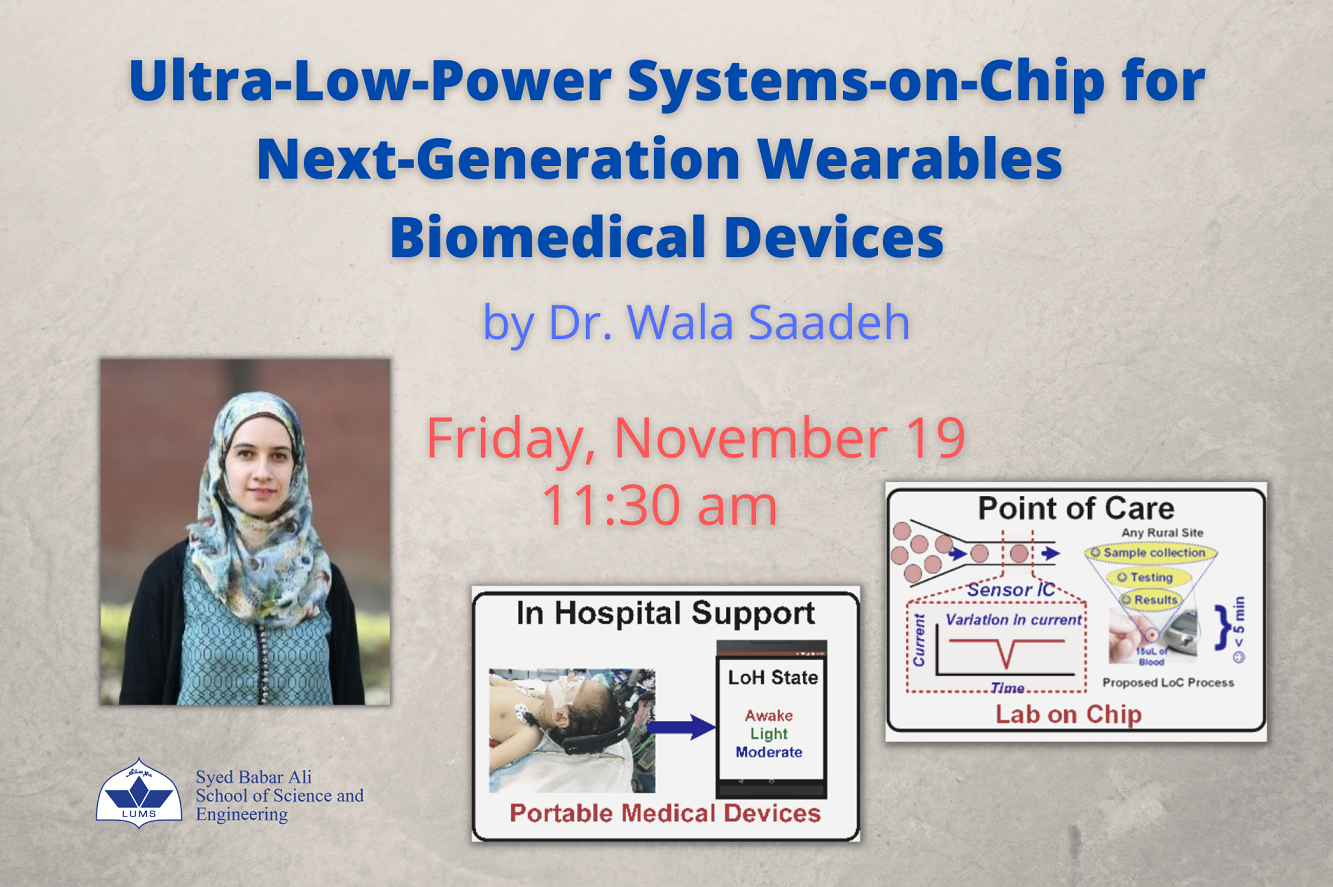
Ultra-Low-Power Systems-on-Chip for Next-Generation Wearables Biomedical Devices
This talk will cover the design strategies of energy-efficient System-on-Chip (SoC) biomedical devices. I will first explore the challenges, limitations and potential pitfalls in wearable interface circuit design, and strategies to overcome such issues. Moreover, I will describe on-chip energy-efficient digital processing techniques for the implementation of machine-learning algorithms for disease detection focusing on two examples, 1) depth of anesthesia monitoring for patients during surgery, and 2) wearable non-invasive glucose monitoring device. The talk will conclude with interesting aspects and opportunities that lie ahead.
Dr. Wala Saadeh will talk about “Ultra-Low-Power Systems-on-Chip for Next-Generation Wearables Biomedical Devices” on Friday, Nov 19 at 11:30 am at SBASSE 10-201. This is part of the Electrical Engineering Department Fall 2022 Research Seminar Series.
The next talk will be on Dec 17, Friday.
About the speaker:
Wala Saadeh received the B.S. degree from the Computer Engineering Department, Yarmouk University, Irbid, Jordan, in 2009, and the M.Sc. degree in Microsystems Engineering and Ph.D. degree in Interdisciplinary Program from the Masdar Institute of Science and Technology, Abu Dhabi, United Arab Emirates, in 2012 and 2016, respectively. In 2013, she joined Test-Chip Integration team, Global Foundries, Dresden, Germany, as a Test-Chip intern, where she performed quality assurance tests on advanced nodes for DFM. She developed a low-energy body-area-network transceiver for binaural hearing aid for long-term continuous monitoring. Since 2016, she has been with the Electrical Engineering Department, Lahore University of Management Sciences, Lahore, Pakistan, where she is currently an Assistant Professor. Her current research interests include ultra-low power wearable devices, and system-on-chip design for portable biomedical devices. Dr. Saadeh was the recipient of the IEEE International Symposium on Circuits and Systems (ISCAS) 2015 Best Paper Award (BioCAS Track) and the ISCAS 2015 Runner-Up Best Student Paper Award.

